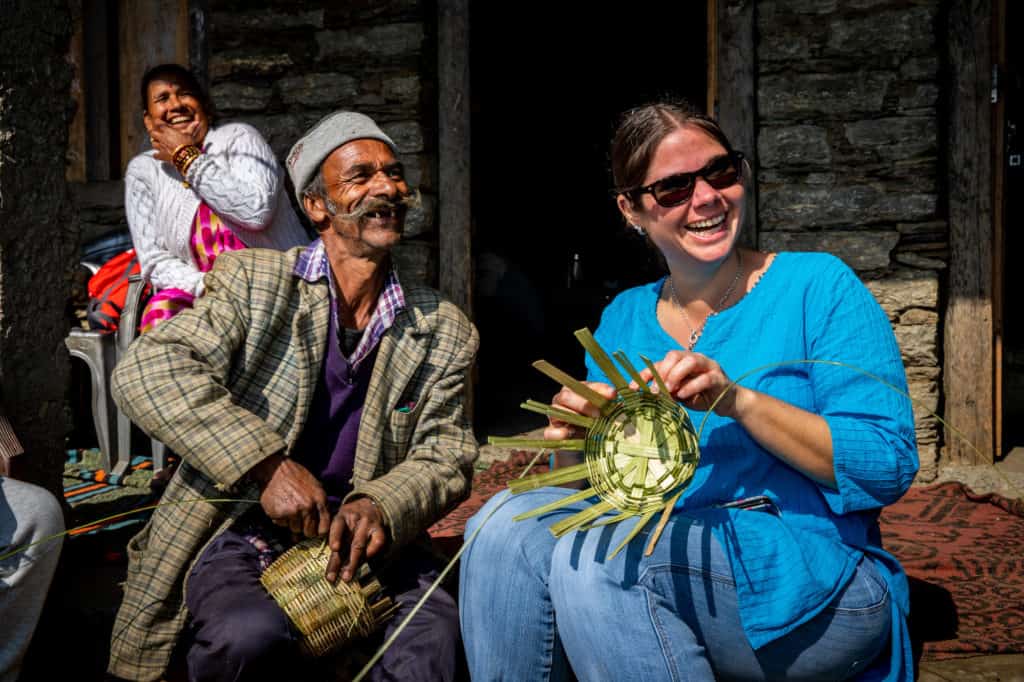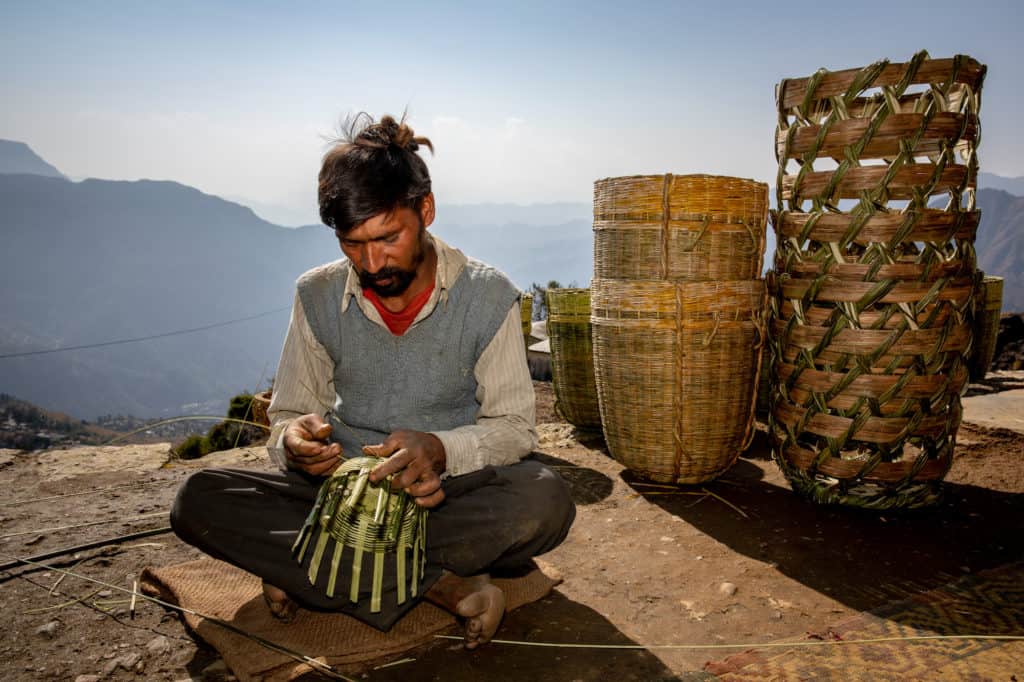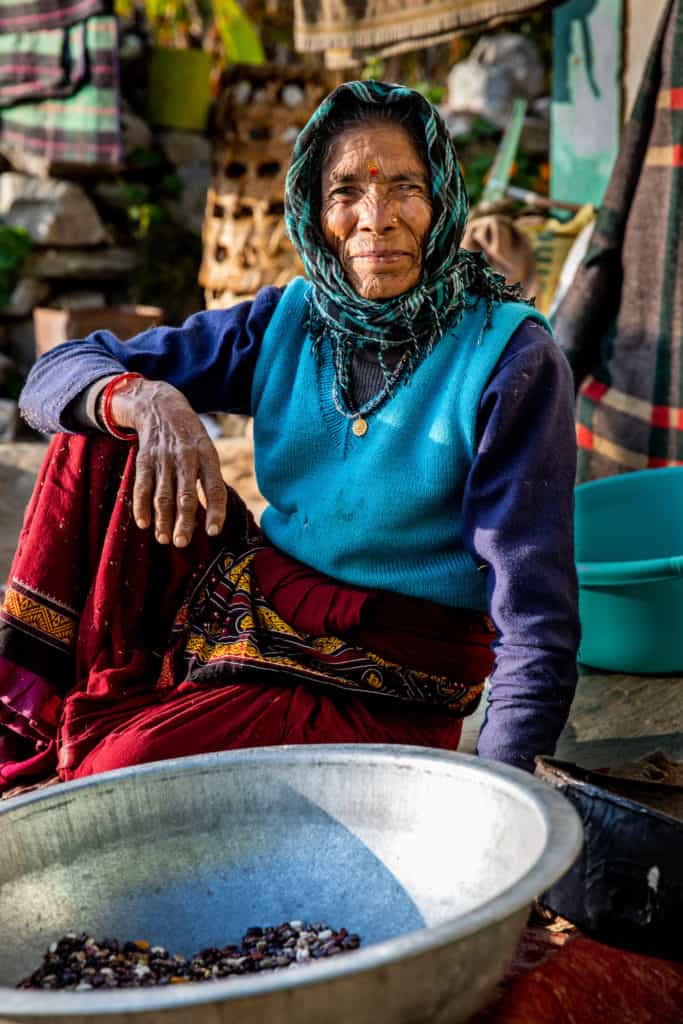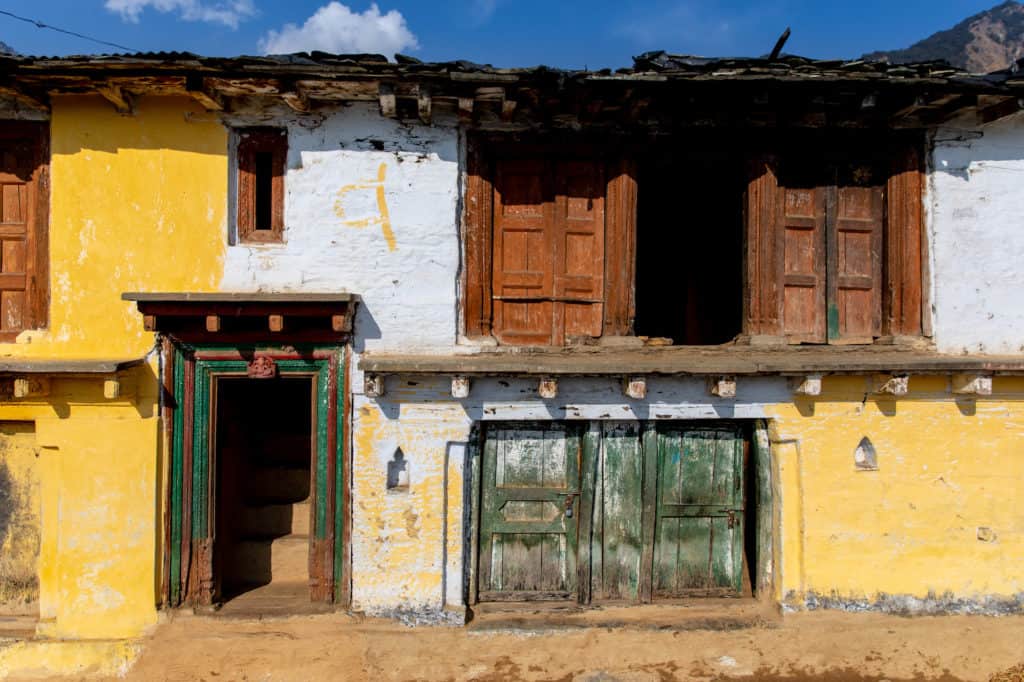In the land of the snow-capped Himalayas, responsible tourism company Fernweh Fair Travel has introduced income-generating programs to India’s lowest caste, the ‘Untouchables’, residing in remote villages in India’s northern region of Gopeshwar, Uttarakhand. Through fair trade and sustainable tourism, Fernweh Fair Travel brings guests to the region to participate in a cultural exchange that drives income to these marginalized communities.
Our tour takes us into a village in the distant hills of Gopeshwar. Situated high above the main road, this village lies hidden from view not by coincidence but by a social stigma that sees a divide between communities dependent upon caste. Today we visit the ‘Untouchables’, India’s lowest caste system segregated by a society exposed to archaic beliefs about societal status.

We commence our ascent through the foothills of the Himalayas, the verdant mountain ranges pose as our backdrop as we climb the cobbled pathways en route to the home that will host us for the afternoon.
We’re here in this village to learn the ancient art of bamboo weaving and learn more about the ‘Untouchables’ that call these hills home. Our itinerary includes an afternoon of cultural immersion through handicrafts and hospitality, stepping into the shoes of these local residents and understanding what life is like for them here.

In many other circumstances, “others” wouldn’t visit these lands. The name ‘Untouchable’ holds the connotation that they remain separated from society. While this ideology is more common in rural areas of India, traces of discrimination spread wide throughout this country. But Fernweh aims to join the movement away from these social segregations.
I spoke with Poonam-Rawat-Hahne, founder of Fernweh, about the decision to include this activity as part of the itinerary – “I don’t believe in caste systems. We are all human and therefore equal. These tribes are underprivileged and often shunned away so I wanted to include them in my travel experience programs. I found that they produce beautiful handicrafts and so I decided to include the handicrafts program as part of my itinerary, so guests could not only interact with these locals but support them through trade as well”
We trek through the villages and encounter some of the friendly locals going about their daily activities. As our eyes meet it prompts a friendly smile and a “Namaste”, and we lift our hands into prayer (the common greeting acknowledgement in India). They are as curious about us as we are about them, and while there may be a language barrier much can be said with a simple smile. Children peek out of their homes and over rooftops, they follow us cheekily laughing. Two women carrying hand-woven baskets holding produce yielded in the fields walk by, a man follows closely behind leading his cattle us the narrow pathway. The ambience could almost be mistaken for a different era, all our senses are heightened as we experience a glimpse of the past.

We arrive at our host’s home. Almost instantaneously you sense the incredible hospitality, as hot, sweet chai is served, accompanied by some biscuits. We’re introduced to the host family to learn more about the bamboo weaving and even get the opportunity to participate as well. We learn about the ancient art of basket weaving, using bamboo to create sturdy, aesthetic household items that offer a source of income for these families.
While we engage with many members of the community we’re informed that the majority of this family have fled the village, an occurrence not uncommon. “We have a huge problem of migration here. People are leaving the mountains for the city. We want to encourage people to stay in this region because many of the villages are becoming barren. Our aim is to provide the incentive of sustainable business opportunity” Poonam said.

Through initiatives such as sustainable tourism and fair trade, Fernweh Fair Travel is providing an opportunity for sustainable livelihoods in these villages. Their slogan “uplifting communities in the Himalayas” rings true as the social stigmas surrounding the ‘Untouchables’ gradually diminish through the empowerment of human beings.
Listen to our Causeartist podcasts here.
Latest Stories
- What are Plant Based Fibers
- 7 Sustainable and Eco Friendly Floss Options
- Anshul Magotra: How Social Innovation Circle Supports Impact Entrepreneurs
- Causeartist Brief – U.S. Department of Energy x Google, Bezos Centers for Sustainable Protein, Oregon Biochar Solutions
- Evidencity: Pioneering the Fight Against Modern Slavery Through Tech










